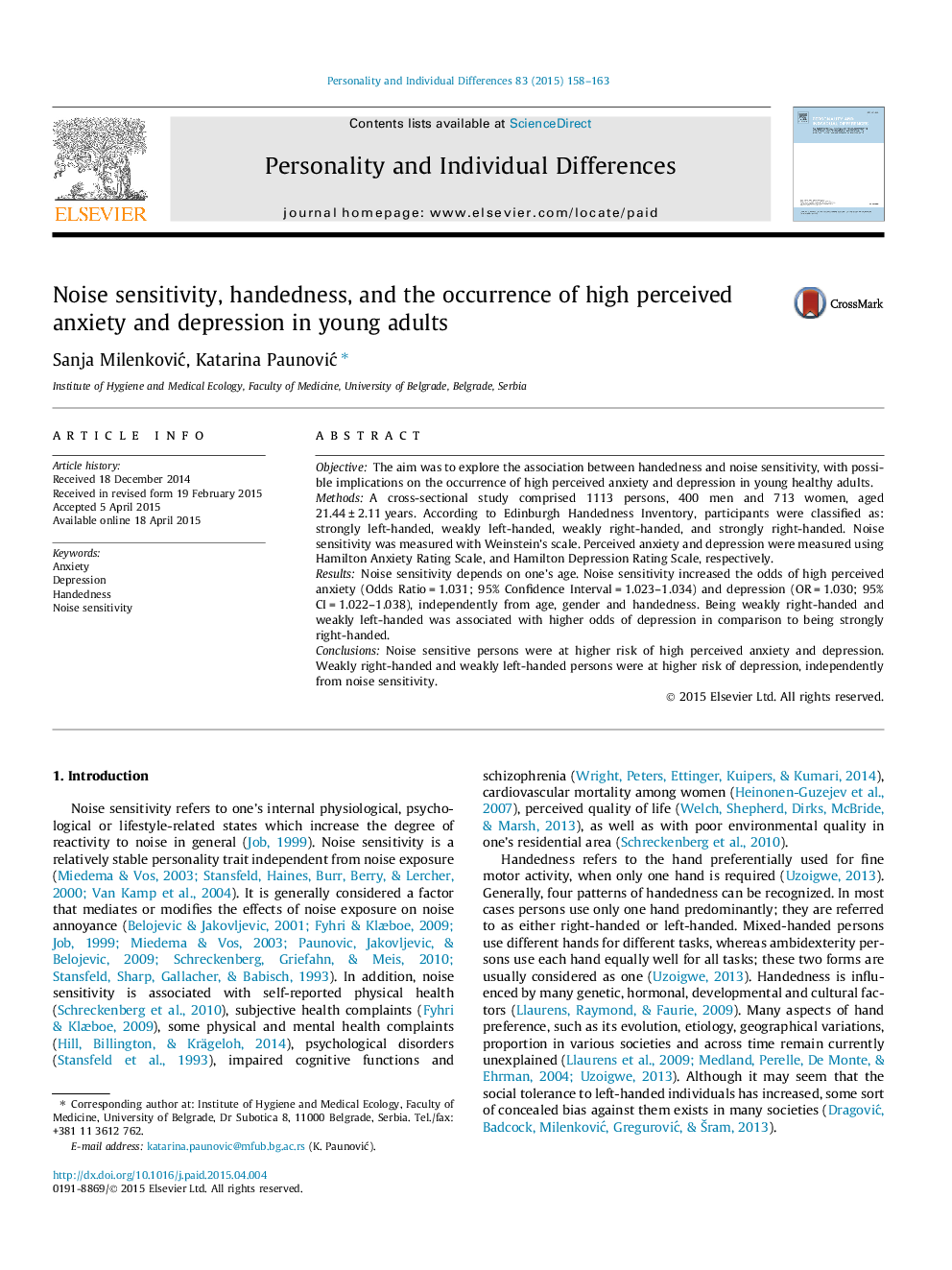| Article ID | Journal | Published Year | Pages | File Type |
|---|---|---|---|---|
| 890148 | Personality and Individual Differences | 2015 | 6 Pages |
•Noise sensitivity depends on one’s age.•Noise sensitivity increases the odds of high perceived anxiety and depression.•Handedness categories are not related to high perceived anxiety.•Weakly right-handed and weakly left-handed persons are at risk of high depression.
ObjectiveThe aim was to explore the association between handedness and noise sensitivity, with possible implications on the occurrence of high perceived anxiety and depression in young healthy adults.MethodsA cross-sectional study comprised 1113 persons, 400 men and 713 women, aged 21.44 ± 2.11 years. According to Edinburgh Handedness Inventory, participants were classified as: strongly left-handed, weakly left-handed, weakly right-handed, and strongly right-handed. Noise sensitivity was measured with Weinstein’s scale. Perceived anxiety and depression were measured using Hamilton Anxiety Rating Scale, and Hamilton Depression Rating Scale, respectively.ResultsNoise sensitivity depends on one’s age. Noise sensitivity increased the odds of high perceived anxiety (Odds Ratio = 1.031; 95% Confidence Interval = 1.023–1.034) and depression (OR = 1.030; 95% CI = 1.022–1.038), independently from age, gender and handedness. Being weakly right-handed and weakly left-handed was associated with higher odds of depression in comparison to being strongly right-handed.ConclusionsNoise sensitive persons were at higher risk of high perceived anxiety and depression. Weakly right-handed and weakly left-handed persons were at higher risk of depression, independently from noise sensitivity.
